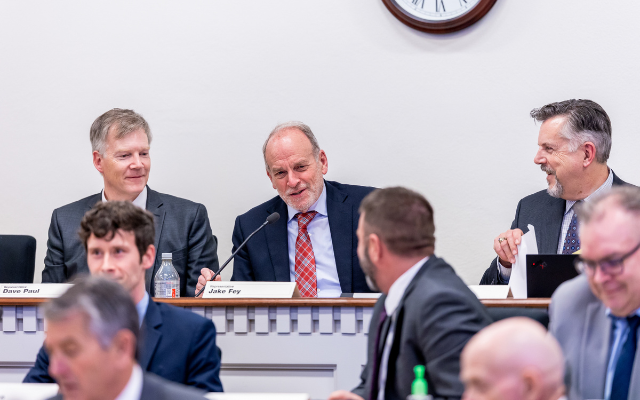Dear friends and neighbors,
It’s been a couple weeks since my last newsletter to you. We’re now in week 4 of this year’s legislative session. In a week’s time, my fellow legislators and I will begin debating bills on the House floor long into the night.
Today, I’d like to share a video with you on traffic safety, which includes a mention of my state trooper bill (House Bill 2357) that would offer longevity bonuses to members of the Washington State Patrol nearing retirement, as well as tell you more about challenges with our state’s transportation budget.
Traffic Safety
I recently had the opportunity to sit down and speak about a few traffic safety bills currently being considered in the House. One of these is my own state trooper bill, HB 2357. Over the past several years, the Washington State Patrol has struggled with maintaining its authorized level of 683 field force troopers. Its current workforce is nearly 25 percent shy of where it should be—and the WSP faces more than 100 potential retirements in the next few years.
My bill would offer a longevity bonus to keep those nearing retirement within WSP’s ranks. Washingtonians rely on state troopers to enforce roadway regulations and help when assistance on the road is needed. Click here or on the image above to learn more about this bill and others designed to keep you and your loved ones safe.
Additionally, compelling public testimony in support of this bill was heard about a week ago from Spike Unruh, President of the Washington State Patrol Union Troopers Association. Click on the image below or here to watch.
A Deeper Look at the State’s Transportation Budget
In my last newsletter, I mentioned that my fellow lawmakers and I have our work cut out for us during this short, 60-day session as we address increasing construction costs for our ferries, roads, and other vital transportation projects. We are witnessing unprecedented cost increases on many transportation projects, as well as corrections to fish passages, which is a federal mandate for the state. The 2023-2025 State Transportation Appropriations Act (transportation budget) appropriated $13.5 billion in 2023 towards the state’s transportation needs.
This year, House Bill 2134, the supplemental transportation budget from the governor, requests an additional $1.6 billion for the current biennium to complete work that was promised in 2022’s historic Move Ahead Washington package, as well as from the 2015 Connecting Washington package.
This week, the House Transportation Committee will have two working sessions with the Washington State Department of Transporation, to address difficult choices that will need to be made with this year’s budget. Some of the issues that will be addressed include:
- 520 Bridge/Portage Bay: When the legislature initially approved a new concrete girder on the bridge with a targeted completion date in the early 2030s, it thought the price tag would be $800 million. But when WSDOT sent out a bid to complete the project, only two vendors were interested—and their estimate came in at a whopping $1.3 billion. The Seattle Times covered this topic in-depth; click here to read more.
- Fish culverts: Last fall, the Seattle Times reported that the huge spike in costs to help salmon could derail the state’s transportation budget. Over the next two decades, remedying the state’s fish culverts is projected to cost anywhere from $7.3 billion to $7.8 billion, far beyond the $3.8 billion already spent or earmarked by the legislature.
- Proceeds from cap-and-trade auctions: I am proud of the Climate Commitment Act, which passed in 2021. More than 100 projects around the state benefitted from the $76.2 million raised in the first year of cap-and-trade auctions. Money from the auctions is used in our state’s operating, capital, and transportation budgets. These funds are vital to keep important projects alive in our state’s transportation budget.
The transportation budget is certain to receive a lot more media coverage in the weeks to come, and I also promise to continue to keep you updated as we work on these challenges and make some tough decisions.
Sincerely,




